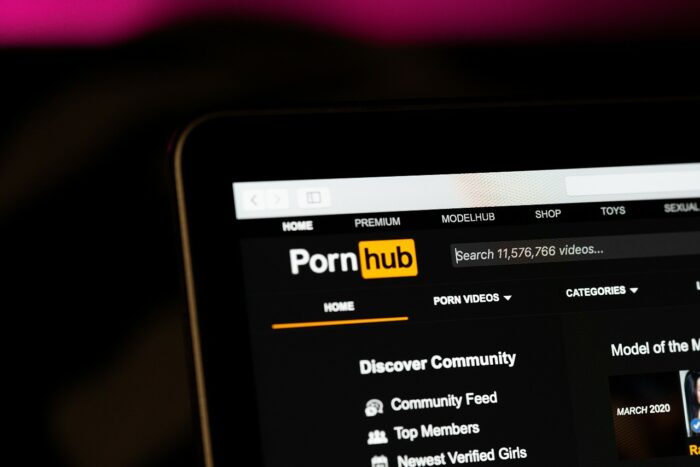Top Class Actions’s website and social media posts use affiliate links. If you make a purchase using such links, we may receive a commission, but it will not result in any additional charges to you. Please review our Affiliate Link Disclosure for more information.

Update:
- A federal judge in California granted class certification to child pornography victims who had their material published on Pornhub.
- Pornhub is accused of participating in a sex-trafficking venture involving tens of thousands of children by allegedly receiving, distributing and profiting from child sexual abuse material.
- The judge determined class certification was appropriate and necessary to obtain an order that would prevent similar content from being posted online going forward and prevent the trauma class members would face with individual litigation.
- A woman who claims her ex-boyfriend published more than 500 videos on PornHub of her having sex when she was 16 years old filed the class action lawsuit against Mindgeek USA Inc. and several of its affiliates in February 2021.
Pornhub class action lawsuit overview:
- Who: Jane Doe filed a class action lawsuit against MindGeek USA Inc., owners of x-rated website Pornhub.
- Why: Doe alleges MindGeek allowed and encouraged child pornography to be posted on its website.
- Where: The class action lawsuit was filed in California federal court.
(Sept. 09, 2021)
A California federal judge denied Pornhub’s owners motion to dismiss a class action lawsuit alleging they allowed and encouraged child pornography.
Plaintiff Jane Doe claimed that MindGeek USA, which owns and operates Pornhub, an online pornography website, knowingly allows child pornography and benefits from child trafficking, since videos posted on the site generate ad revenue that is shared among uploaders.
MindGeek, meanwhile, claimed they were protected by Section 230 of the Communications Decency Act, a provision which shields internet service providers from being held liable for what is posted on their platforms by a third party.
U.S. District Judge Cormac J. Carney largely disagreed with MindGeek, saying Doe’s claims were exempt from Section 230 because they involved online sex trafficking, as outlined by Allow States to Fight Online Sex Trafficking Act (FOSTA).
MindGeek had argued that FOSTA only affected Doe’s claims under the federal Trafficking Victims Protection Reauthorization Act, but Carney wrote they also were valid under California State Law since Doe alleged MindGeek materially contributed to child pornography creation.
Pornhub could be considered a “publisher by law”
Carney said MindGeek could be considered a publisher by law since it allegedly provides tools that directed users to child pornography, such as categories, tags, titles, and curated playlists with references to underage material such as “less than 18,” “young boys,” and “under-age.”
Doe alleged in her class action lawsuit that her ex-boyfriend uploaded more than 500 videos of her having sex as a 16-year-old to the platform without her consent. Some of the videos got as many as 30,000 views and were left up for more than a month, according to the order.
Carney wrote that MindGeek had “ample time,” to remove and identify the videos as child pornography, and thus it was plausible they had a “continuous business relationship,” with Doe’s ex-boyfriend and traffickers like him.
Carney did dismiss without prejudice Doe’s claims MindGeek violated California’s Unfair Competition Law and were guilty of unjust enrichment, saying she didn’t plead how she was financially burdened or identify why she is owed restitution.
Doe’s claims that MindGeek received and distributed child pornography, violated the California Trafficking Victims Protection Act, distributed private sexually explicit material, and intentionally inflicted emotional distress, were all allowed to go forward, according to the order.
Two sex trafficking victims lobbied another class action lawsuit against Pornhub in February, alleging the website promoted and enabled the sexual abuse of minors.
Should Pornhub be held accountable? Let us know what you think in the comments.
The plaintiff is represented by Davida Brook, Krysta Kauble Pachman, Arun Subramanian, and Tamar Lusztig of Susman Godfrey LLP, and Steve Cohen of Pollock Cohen LLP.
The Pornhub Class Action Lawsuit is Doe v. MindGeek USA Inc., et al., Case No. 8:21-cv-00338, in the U.S. District Court for the Central District of California.
Don’t Miss Out!
Check out our list of Class Action Lawsuits and Class Action Settlements you may qualify to join!
Read About More Class Action Lawsuits & Class Action Settlements:















59 thoughts onJudge grants class certification to Pornhub child pornography victims
So what makes you qualify
Sue they asses!
Add me too
add me as well
please add me
Please include me